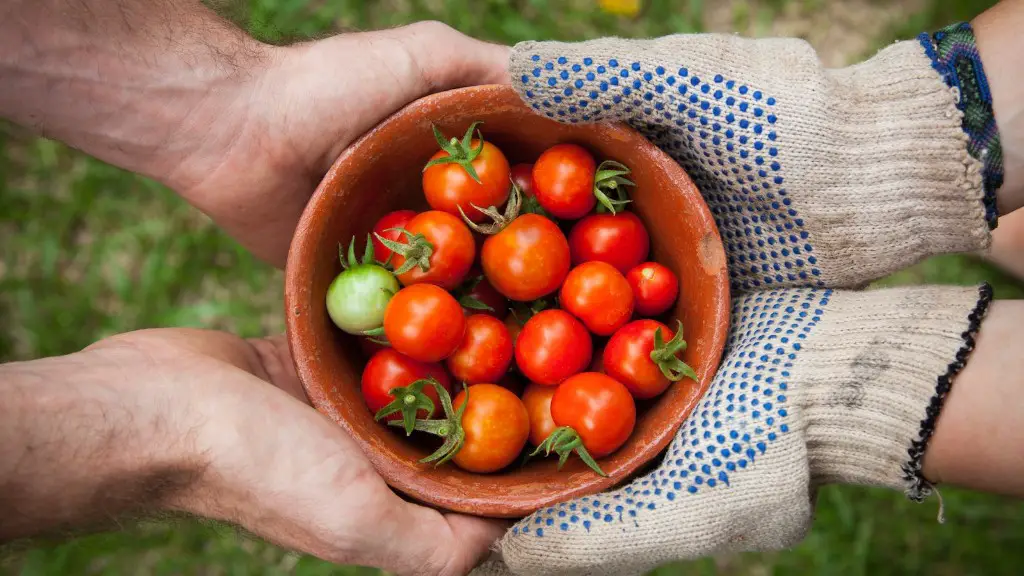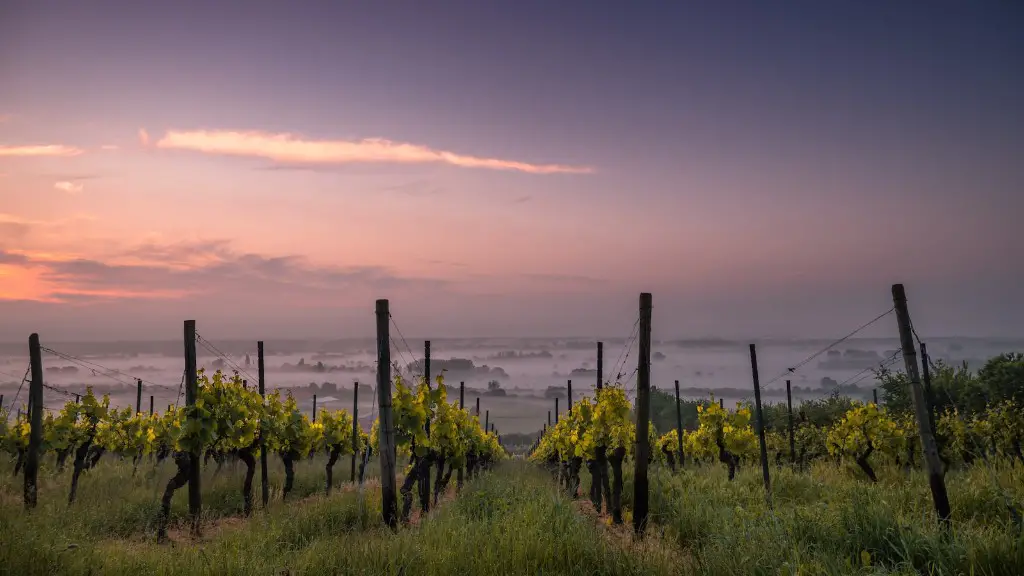Nevada’s agriculture is a diverse industry that provides a range of products and services to meet the needs of the state’s population. Nevada has a wide variety of crops and livestock that give the state a unique agricultural environment. Nevada’s economy has a large agricultural sector, accounting for about 11.6% of total employment in the state. The major crops grown in Nevada are cotton, alfalfa, and small grains, as well as fruits and vegetables. Livestock farming is also a major agricultural activity in the state, with beef and dairy cattle, poultry, and sheep herds providing much of the meat products consumed in the state. Nevada’s agriculture is continually growing and developing to meet the needs of an ever-increasing population and a growing tourist industry.
Types of Crops Grown in Nevada
The state of Nevada is an important agricultural producer in the region. Cotton, alfalfa, small grains, fruits, and vegetables are all important crops grown in the state. Hay and forage crops are also amongst the more extensively cultivated crops in Nevada. Cotton is the state’s major crop and is the biggest income item for farmers in the state. Cotton is primarily grown in the northern and western-central regions of the state. Alfalfa is the state’s second most important crop and the state is the nation’s third largest producer of alfalfa. Small grains are grown in the western-central part of the state and include wheat, barley, oats, and triticale. Fruit and vegetable production is an important and increasing sector in the state because of its warm climate, desert environment, and irrigation water.
Livestock Farming in Nevada
In addition to crop production, Nevada has an important livestock industry. The state is the nation’s fourth leading producer of beef cattle and the largest in the West. Dairy cattle, poultry, and sheep production are important components of the state’s livestock sector. Nevada’s beef industry has been bolstered in recent years by the addition of more breeds and increased production technologies, such as feedlot systems and artificial insemination. The state is also home to more than 35,000 horses and burros, which contribute to the state’s unique agricultural environment.
Economic Impact of Nevada’s Agriculture
Agriculture is a major contributor to Nevada’s economy, accounting for 11.6% of total employment in the state. The total value of Nevada’s agricultural production remains volatile due to climate, fluctuating weather patterns, and unpredictable markets. The state’s agricultural sector is growing faster than any other segment of the Nevada economy, and the state’s agricultural exports account for nearly 25% of all Nevada exports. Nevada’s leadership in the use of renewable energy resources and emerging technologies are helping to make it a leader in the nation’s agricultural economy.
Nevada’s Organic Agriculture
Organic farming and other environmentally friendly practices are increasingly being used by Nevada farmers to produce healthy, wholesome food for the state’s population. Organic production avoids chemicals and genetic modifications, reducing environmental degradation, increasing water, air, and soil quality, and improving animal welfare and food safety. Companies in the state have become leaders in the organic industry, proving that Nevada is not only capable of providing large amounts of food but also providing healthy, sustainable food.
Agritourism in Nevada
Agriculture in Nevada is not limited to traditional farm production and there is an increasing emphasis being placed on agritourism. Agritourism is a form of economic diversification which capitalizes on the state’s agricultural offerings and offers visitors the opportunity to experience farm life and the rural landscape through farm stays, educational tours and activities, and recreational activities. Agritourism, combined with Nevada’s growing tourism industry, has the potential to benefit the state’s agricultural sector and contribute to rural economies and communities.
Community Supported Agriculture (CSA)
Community Supported Agriculture (CSA), a practice that encourages farming communities to build closer relationships with their members, is becoming more common in Nevada. CSA members buy a share of a farm’s yearly crop, which typically includes a variety of fruits and vegetables. This not only helps farmers spread their production costs over a larger market, but also connects urban consumers with farmers in the rural communities. CSA is a win-win situation for consumers, who get access to healthy, locally grown food, and farmers, who get the security of a guaranteed sale.
Agricultural Education Programs in Nevada
The University of Nevada, Reno is home to an internationally acclaimed School of Agriculture and Natural Resources, which provides science-based educational programs and consulting services to the agricultural community. The School also offers a range of certificate, degree and diploma programs that can prepare individuals for employment in the field of agriculture. In addition to education, the state also offers agricultural extension services that provide information and resources for farmers, ranchers and other rural communities.
Agricultural Researches and Innovations in Nevada
Nevada is home to a number of agricultural research institutions and centers that provide a range of services and educational opportunities to farmers, ranchers and other agricultural professionals. These institutions are dedicated to the improvement of technology and techniques for the production, management and marketing of agricultural products and services in Nevada. Research also focuses on the efficient use of natural resources and reducing environmental impacts from agriculture production. The Nevada Agricultural Experiment Station at the University of Nevada, Reno conducts research on crops, livestock, and natural resources and creates innovative technologies to improve farming processes.
Agricultural Organizations in Nevada
Several organizations in Nevada support and promote the state’s agricultural community. The Nevada Farm Bureau is an organization that represents farmers and ranchers in the state, and is actively involved in advocacy and support for the agricultural sector. The Nevada CattleMen’s Association provides valuable resources to the state’s beef industry, while the Nevada Sheep Growers Association serves to protect and promote sheep production in the state. The Nevada Department of Agriculture also provides valuable services such as regulation and inspection of agricultural products, certification of farms and ranches, and research and development.


